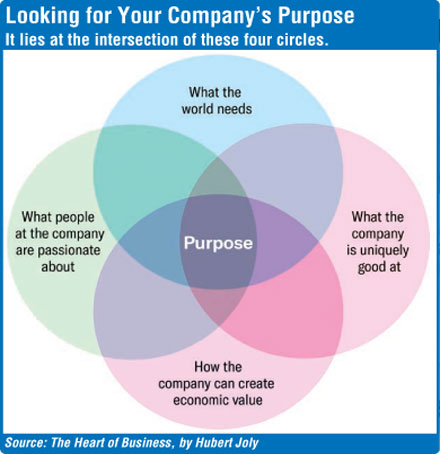Sunday Feb 15, 2026
Sunday Feb 15, 2026
Monday, 9 May 2022 00:46 - - {{hitsCtrl.values.hits}}

Looking at the way many purpose statements are written today, it doesn’t come as much of a surprise that employees aren’t buying into them

By Saumya Vasuthevan
Over the last decade, purpose has become the flavour du jour for corporations. Its popularity fuelled by statistics, reports, and CEOs extolling its virtues including: socio-environmental good, a north star in a volatile future, attracting talent and investors, a more customer-centric approach, and ultimately, higher performance and sustainability for the business.
According to a 2020 McKinsey survey, 82% of employees affirmed the importance of purpose, but only 42% reported that their company’s stated purpose had much effect. In other words, their purpose statements do not fulfil their intended purposes.
Looking at the way many purpose statements are written today, it doesn’t come as much of a surprise that employees aren’t buying into them. They aren’t useful to strategy, and ultimately, they’re not creating much of an impact on the world.
Purpose statements often lack social commitments, dampening their power to inspire and rally employees
In the corporate world, purpose is simply defined as a company’s reason for existence. So, while many businesses see the value of purpose, not all of them have articulated a clear social purpose; a business purpose seems to suffice. It’s a nice bow to wrap around pitch decks, letters to investors, and company websites. Meanwhile, social commitments are often sequestered in Corporate Social Responsibility (CSR) sections, divorcing them from the core identity of the organisation.
Drawing from a few global corporations, a business’s purpose often sounds like: to deliver on the promise of technology and human inventiveness or to become essential to our customers by providing differentiated products and services to achieve their goals.
But if one of the key functions of purposes is to serve as a rallying cry for employees and stakeholders, are these statements enough? Will they inspire employees to do their most innovative work or to encourage long-term loyalty? Is it something that employees would feel proud being a part of, something that feels much bigger themselves, something that feels purposeful?
Using former CEO of Best Buy, Hubert Joly’s framework, we can re-define purpose to articulate a larger social cause worth fighting for. It is a lens that sets employees on a mission to solve the problems they care deeply about, while leveraging existing capabilities, and continuing to drive value for the business.
Even when there’s an attempt to articulate a social purpose, it’s often too broad to be useful for strategy
Drawing from a large tech corporation, one example of this is ‘to enrich lives through technology’. This is a rather vague social commitment, but let’s give them the benefit of the doubt since they have a separate CSR statement expounding upon what they mean; ‘enriching lives by doing what’s best for the community and the planet.’ Serving people and the planet is a noble raison d’être, but it quite literally covers everything under the sun. How might an employee use such a statement as a north star? These broad, unfocused claims make for poor tools for strategy.
Perhaps it’s time we re-defined purpose to sharply identify exactly how our business creates profitable solutions to the problems of people and planet (British American Academy). Best-in-class examples include: “We exist to accelerate the planet’s transition to sustainable energy” (Tesla), “To inspire and develop the builders of tomorrow” (Lego), “Bring inspiration and innovation to every athlete in the world. If you have a body you are an athlete” (Nike).
Purpose seems to be approached from a place of risk mitigation, restricting their capacity for social change
A large tech company’s purpose is to serve the public conversation. But like many of its competitors, it’s been under fire for insufficient efforts to thwart threats to democracy, the spread of misinformation which may incite violence, or to protect young people’s mental health.
That being said, it’s understandable why these organisations wouldn’t want to address some of the harm they’re creating through a revamped purpose; perhaps fearing they might be held accountable to a social mission they can’t live up to all the time. A more relevant purpose could open them up to criticism, cries of hypocrisy, and boycotts. But there is inherent risk in social change; it has to be embraced for purposes to be active, relevant tools for social transformation.
So where do we go from here?
1. Commit to something: a common social or environmental cause that will truly inspire employees to think and work for something bigger than themselves.
2. Be specific. Which aspect of society or the environment will your business serve? How exactly will you achieve it within the bounds or adjacencies of your business?
3. Take some risks and be transparent end-to-end. Customers are not mindless sheep who will buycott or boycott brands at the drop of the hat. We understand the complexity of supply chains, global operations, and the need to serve bottom lines – we work at your organisations too. Craft a purpose that’s relevant and truly addresses your positive and negative externalities. If you include customers as partners, and are transparent about your intentions and outcomes every step of the way, trust that we will take this journey with you.
(The writer is an Associate, Quantum Consumer Solutions.)